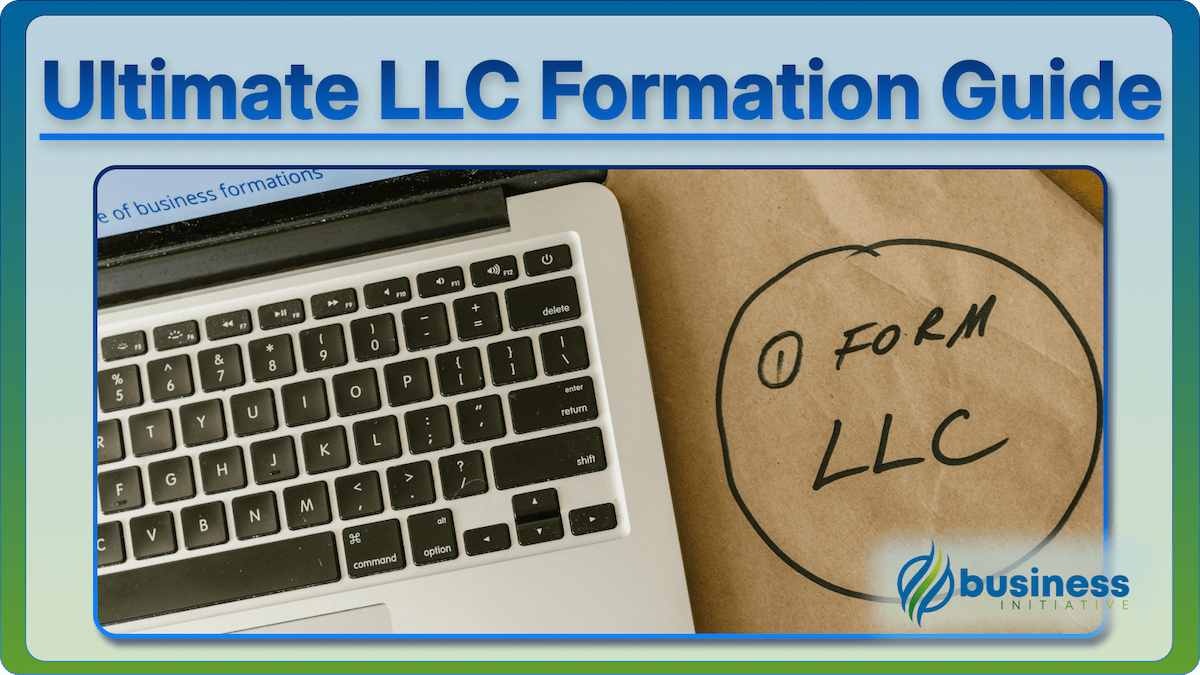M&A feels complex. Jargon everywhere. Unclear process. Unknown players.
Most owners avoid M&A. They don’t understand. They miss opportunities. They make mistakes.
M&A basics demystify process. Key terms explained. Stages clarified. Players identified.
This plain-English primer explains key terms, stages, and players in M&A for small business owners.
 Key Takeaways
Key Takeaways
- Understand terms—learn M&A language
- Know stages—see process steps
- Identify players—see who's involved
- Follow process—navigate M&A
- Make decisions—participate effectively
 Table of Contents
Table of Contents

M&A Overview
M&A means mergers and acquisitions. Businesses combine. Businesses change hands. Deals happen.
M&A is process: It has stages. It has players. It has terms.
M&A is accessible: Understanding basics enables participation. Basics demystify process.
Why this matters: Overview understanding enables participation. If you understand overview, participation becomes possible.
Key Terms
M&A has specific terms. Understanding terms enables communication. Terms clarify process.
Acquisition Terms
Common terms:
- Acquisition: Buying a business
- Merger: Combining businesses
- Due diligence: Investigation process
- Valuation: Business worth
Why this matters: Term understanding enables communication. If you understand terms, communication improves.
Deal Terms
Common terms:
- Letter of intent: Preliminary agreement
- Purchase agreement: Final contract
- Closing: Deal completion
- Earnout: Future payment based on performance
Why this matters: Term understanding enables communication. If you understand terms, communication improves.
Financial Terms
Common terms:
- EBITDA: Earnings measure
- Multiplier: Valuation method
- Working capital: Operating funds
- Debt assumption: Taking on debt
Why this matters: Term understanding enables communication. If you understand terms, communication improves.
Pro tip: Use our TAM Calculator to evaluate market opportunity and inform M&A decisions. Calculate market size to understand potential.

M&A Stages
M&A process has stages. Each stage has purpose. Each stage has requirements.
Stage 1: Preparation
What happens:
- Business preparation
- Documentation gathering
- Financial review
- Goal setting
Why this matters: Stage understanding enables preparation. If you understand stages, preparation improves.
Stage 2: Marketing
What happens:
- Business listing
- Buyer identification
- Marketing materials
- Initial discussions
Why this matters: Stage understanding enables participation. If you understand stages, participation improves.
Stage 3: Negotiation
What happens:
- Offer discussions
- Term negotiation
- Price negotiation
- Agreement drafting
Why this matters: Stage understanding enables negotiation. If you understand stages, negotiation improves.
Stage 4: Due Diligence
What happens:
- Business investigation
- Financial review
- Legal review
- Risk assessment
Why this matters: Stage understanding enables participation. If you understand stages, participation improves.
Stage 5: Closing
What happens:
- Final agreements
- Payment processing
- Transfer of ownership
- Deal completion
Why this matters: Stage understanding enables completion. If you understand stages, completion becomes possible.
Key Players
M&A involves multiple players. Each has role. Each has interests.
Buyers
Who they are:
- Individuals buying business
- Companies acquiring
- Investors purchasing
- Strategic acquirers
Why this matters: Player understanding enables interaction. If you understand players, interaction improves.
Sellers
Who they are:
- Business owners selling
- Companies divesting
- Founders exiting
- Owners retiring
Why this matters: Player understanding enables interaction. If you understand players, interaction improves.
Advisors
Who they are:
- Business brokers
- M&A attorneys
- Accountants
- Financial advisors
Why this matters: Advisor understanding enables use. If you understand advisors, use improves.
Pro tip: Use our TAM Calculator to evaluate market opportunity and inform M&A decisions. Calculate market size to understand potential.
Your Next Steps
M&A basics provide foundation for participation. Understand terms, know stages, identify players, follow process, then make decisions to participate effectively.
This Week:
- Begin learning M&A basics using our TAM Calculator
- Start understanding key terms
- Begin learning stages
- Start identifying players
This Month:
- Complete term understanding
- Understand all stages
- Know all players
- Begin participating in M&A
Going Forward:
- Continuously learn M&A
- Apply knowledge
- Participate effectively
- Make informed decisions
Need help? Check out our TAM Calculator for market evaluation, our buying vs. starting guide for comparison, our sell-ready checklist for preparation, and our deal structures guide for understanding.
Stay informed about business strategies and tools by following us on X (Twitter) and signing up for The Initiative Newsletter.
FAQs - Frequently Asked Questions About M&A Basics for Small Business Owners: Key Terms, Stages, and Players

What is the difference between a merger and an acquisition?
An acquisition is when one business buys another, while a merger is when two businesses combine into a single new entity.
Learn More...
In an acquisition, one company (the buyer) purchases another company (the target). The buyer takes ownership and the target may or may not continue to exist as a separate entity. In a merger, two companies agree to combine their operations, assets, and ownership into one new entity. While the terms are often used interchangeably, the key distinction is control: an acquisition has a clear buyer and seller, while a merger is theoretically a combination of equals—though in practice, one party usually has more influence.
What does 'due diligence' mean in an M&A deal and why is it critical?
Due diligence is the investigation stage where the buyer thoroughly examines the target business's finances, legal standing, operations, and risks before finalizing the deal.
Learn More...
Due diligence is the buyer's opportunity to verify everything the seller has claimed. It involves a deep review of financial statements, tax returns, legal contracts, employee agreements, outstanding liabilities, customer relationships, and operational processes. This stage protects the buyer from hidden problems—such as undisclosed debts, pending lawsuits, or inflated revenue figures. For small business owners, due diligence is where deals are made or broken. Sellers should prepare by organizing all documentation before the process begins, and buyers should hire professionals (accountants and attorneys) to conduct thorough reviews.
What is an earnout and when is it used in M&A deals?
An earnout is a deal term where part of the purchase price is paid later, based on the business hitting future performance targets after the sale closes.
Learn More...
An earnout bridges the gap when buyer and seller disagree on a business's value. Instead of paying the full price upfront, the buyer pays a base amount at closing and additional payments later if the business meets agreed-upon performance milestones—like revenue targets or customer retention rates. Earnouts are commonly used in small business M&A when the seller's involvement is critical to future success, or when the business's trajectory is uncertain. For sellers, earnouts carry risk because you're betting on future performance. For buyers, they reduce upfront cost and align the seller's incentives with continued growth.
What are the five stages of a typical M&A process for small businesses?
The five stages are preparation, marketing, negotiation, due diligence, and closing.
Learn More...
Stage 1 (Preparation) involves getting the business ready—gathering documentation, reviewing financials, and setting goals. Stage 2 (Marketing) is where the business is listed and potential buyers are identified through marketing materials and initial discussions. Stage 3 (Negotiation) covers offer discussions, price negotiation, and drafting terms. Stage 4 (Due Diligence) is the investigation phase where the buyer reviews financials, legal documents, and risks. Stage 5 (Closing) finalizes the deal with signed agreements, payment, and transfer of ownership. Understanding these stages helps small business owners navigate the process without being caught off guard.
What role do business brokers play in small business M&A?
Business brokers act as intermediaries who help sellers find buyers, manage negotiations, and guide both parties through the M&A process.
Learn More...
Business brokers are one of the key advisor types in M&A, alongside M&A attorneys, accountants, and financial advisors. Brokers specialize in connecting sellers with qualified buyers, valuing the business, preparing marketing materials, and managing the transaction process. For small business owners who have never sold or bought a business, a broker provides critical expertise in pricing, negotiation strategy, and deal management. They typically charge a success fee (a percentage of the sale price), which aligns their incentives with getting the deal done at a fair price.
What does EBITDA mean and why is it important for business valuation in M&A?
EBITDA stands for Earnings Before Interest, Taxes, Depreciation, and Amortization—it measures a business's operating profitability and is the most common basis for M&A valuations.
Learn More...
EBITDA strips out financing decisions (interest), tax strategies (taxes), and accounting methods (depreciation and amortization) to show how much cash the business generates from its core operations. In M&A, buyers multiply EBITDA by an industry-specific multiplier to estimate business value. For example, a business with $200,000 in EBITDA and a 3x multiplier is valued at $600,000. Understanding your EBITDA is essential whether you're buying or selling because it's the foundation of nearly every small business valuation and directly impacts the price negotiation.
Sources & Additional Information
This guide provides general information about M&A basics. Your specific situation may require different considerations.
For market size analysis, see our TAM Calculator.
Consult with professionals for advice specific to your situation.


